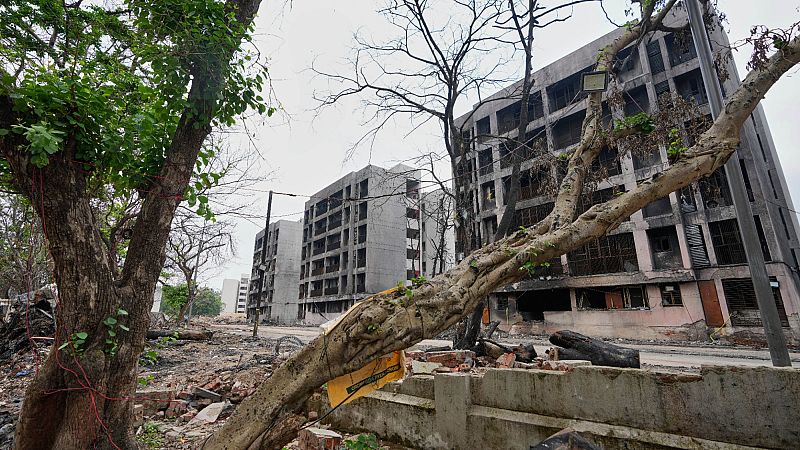
The families of four passengers killed in an Air India jet crash in June have filed a lawsuit in the US against planemaker Boeing and aircraft parts manufacturer Honeywell.
The lawsuit, which accuses the firms of negligence, alleges faulty fuel switches led to the crash that killed around 260 people. The US Federal Aviation Administration (FAA) previously claimed the mechanism in Boeing planes was safe.
The accident happened shortly after takeoff from Ahmedabad International Airport in India. A total of 242 people were killed onboard, 19 more died on the ground, while one passenger survived.
A preliminary investigation report in July, produced by India's Aircraft Accident Investigation Bureau (AAIB), found that fuel to the engines of the plane was cut shortly after takeoff. It did not support speculation that birds could have caused the crash, stressing that “no significant bird activity” was monitored near the plane.
AAIB’s report found that Air India had not conducted suggested inspections on fuel switches before the flight. In 2018, the US’ FAA had issued a bulletin, noting that some Boeing fuel control switches were installed with the locking feature disengaged. This feature is designed to hold the parts in position and ensure fuel can travel to the engines.
The 2018 bulletin advised that inspections should be carried out, although this wasn’t a legally enforceable regulation.
The lawsuit filed by victims’ families alleges that both Boeing and Honeywell were aware of the crash risk and did not take adequate steps to prevent it.
There is no evidence that the firms alerted Air India or others operating their products that the switches must be inspected, and they did not ship replacement switches to airlines.
The lawsuit added that the switches are located in a place where they could easily be knocked by accident.
“It is shocking that Honeywell and Boeing both knew of this danger and did absolutely nothing to prevent the inevitable catastrophe that occurred on June 12,” said Benjamin Major from the Lanier Law Firm, co-counsel for the families.
He added: “This defect is comparable to an auto manufacturer putting an unprotected emergency brake control next to a radio volume knob in your car. And unlike a car, restarting jet engines takes minutes of time, not seconds.”
An audio recording from the cockpit, detailing a conversation between the pilots, suggests that neither intended to cut off the fuel. Although they attempted to restart the engines, there was insufficient time to prevent the crash.
A more detailed report of the incident is expected next year.
Honeywell did not immediately respond to Euronews’ request for comment. Boeing pointed to AAIB’s preliminary report and declined to comment further.







